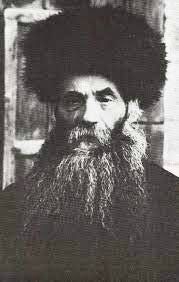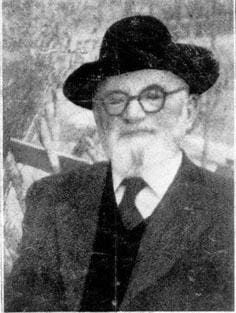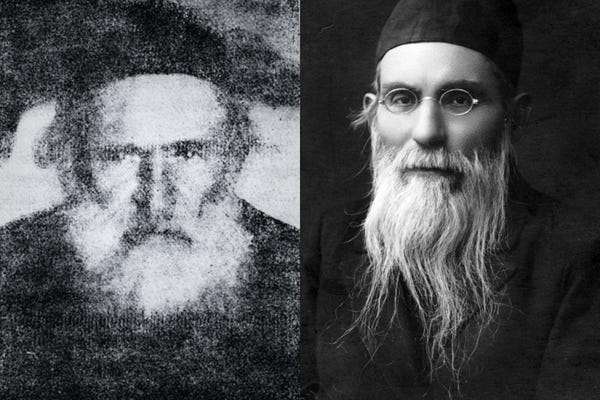Mishpatim
Laws of a Borrower
וְכִֽי־יִשְׁאַ֥ל אִ֛ישׁ מֵעִ֥ם רֵעֵ֖הוּ וְנִשְׁבַּ֣ר אוֹ־מֵ֑ת בְּעָלָ֥יו אֵין־עִמּ֖וֹ שַׁלֵּ֥ם יְשַׁלֵּֽם
אִם־בְּעָלָ֥יו עִמּ֖וֹ לֹ֣א יְשַׁלֵּ֑ם אִם־שָׂכִ֣יר ה֔וּא בָּ֖א בִּשְׂכָרֽוֹ
If a man borrows something from his fellow, and it breaks or dies; if the owner is not with him, he [the borrower] must make full restitution.
If the owner is with him, then he need not make restitution. If it was hired, it comes in its rental price.
22:13-14
One who borrows an object is liable for damages even if was completely out of his control.1 What is the rationale for this? Even more perplexing is the exemption of the borrower when the lender is with him. “With him” means that he did some job for the borrower. From the Mishnah and Gemara2 we see that the lender does not have to be present when the object was damaged. So why is the fact that the lender did something for the borrower a reason for the lender to lose compensation for the damages?
Many meforshim grapple with this issue. I saw a nice explanation based on the teachings of Rav Kook.3 He explains that the Torah placed extra liabilities on the borrower, even in cases when the object was lost or damaged in ways that are completely out of his control, in order to encourage people to lend to one another. The knowledge that if anything happens to the object he will get paid back no matter what will dispel any reservations he may have to lend out his possessions.
This may also explain the exemption when the lender did a job for the borrower. The lender’s service for the borrower indicates that they are on friendly terms. It is therefore unlikely that the owner will refuse to lend out his possessions. In such a case, there is no need to place extra liabilities upon the borrower in order to encourage a loan.4
Rav Isser Zalman and the (non-)widow
כׇּל־אַלְמָנָ֥ה וְיָת֖וֹם לֹ֥א תְעַנּֽוּן
Any widow or orphan do not afflict.
22:21
When reading the parsha, a story came to mind. I thought it involved a widow, but after looking at different versions of the story, many of them not mentioning that the woman involved was a widow, I am now doubtful that this was the case. In any event, the story is worth sharing so here goes.
Rav Isser Zalman Meltzer was seen ascending the steps to his home when he suddenly stopped and went back down. He began to pace back and forth. When asked why he did not want to enter his home, he responded that the woman who was cleaning the floor was enjoying singing to herself as she worked; if Rav Isser Zalman were to enter she would stop singing. Rav Isser Zalman was so attuned to people’s feelings that he picked up on the simple joy that the singing was bringing this woman. And this was a woman working for him in his own home!5
Not everyone understood Rav Isser Zalman’s motives to be about the woman’s feelings. Here is an interesting excerpt from The Making of a Gadol by Rav Nosson Kamenetzky:6
I was told by my son R' Yoseph that R' Shlomo Fisher told him how R' Yitzhaq Kulitz, Rav of Jerusalem, was incensed with the reaction of a "present-day rosh yeshiva" to a story he was told about how R' Isser Zalman Meltzer was going up the steps to his house and overheard the cleaning lady singing to herself while washing the floor. R' Isser-Zalman went back down to the street and paced the ground for a long while until she had finished her work, and then he returned home. The rosh yeshiva understood R’ Isser-Zalman's action as indicative of how careful he was in avoiding the sound of a singing woman (קול באשה) for the time it would have taken him to walk from mid-staircase until entering his home — when the woman would certainly have stopped singing.
"In actuality," said R' Kulitz, "R' Isser-Zalman was concerned that when he would walk into the house, the woman, who enjoyed singing while on the job, would be inconvenienced by having to stop singing for the rest of her working time." Also cf. the definitive biography of R' Isser-Zalman Meltzer בדרך עץ חיים, where that tzaddiq's grandson records the story as it occurred - and that his grandfather himself explained his action without any reference to קול באשה; it even has R' Isser-Zalman pacing on the porch just outside the door to his house - where he could likely still hear the singing (if he chose to listen)!7 R' Yitzhaq Kulitz was fuming about that rosh yeshiva's misinterpretation of R' Isser-Zalman's motive because through his wrong interpretation, he had missed out on R Isser-Zalman's extraordinary consideration for people.
Teshuva for a Lie
מִדְּבַר־שֶׁ֖קֶר תִּרְחָ֑ק וְנָקִ֤י וְצַדִּיק֙ אַֽל־תַּהֲרֹ֔ג כִּ֥י לֹא־אַצְדִּ֖יק רָשָֽׁע
Keep far away from false things. Do not kill a righteous man, for I will not acquit a wicked person.
23:7
Rav Yechiel Yaakov Weinberg related a story that gives us a glimpse of how the Alter of Slabodka trained his students. Rav Yechiel Yaakov once had the opportunity to speak with Rav Naftali Amsterdam, one of the leading mussar personalities of that time. Here is how the story was recounted:8
I told Reb Naftali that I sometimes forget to daven Mincha and asked for a solution to not forget again. He fixed his piercing gaze on me and asked me in alarm, ‘Do you completely forget to daven Mincha or do you not daven with a minyan?’ He spoke to me in such a frightened way that I was frightened myself and replied that I do not pray with a minyan. I was ashamed to admit the truth.
After that, I went to Rav Nosson Tzvi Finkel, the Alter of Slabodka, and told him that I spoke with Reb Naftali and after he gave me a piercing look I said that I only do not daven Mincha with a minyan, but the truth is that sometimes I do not daven Mincha at all. The Alter stood up from his chair and said to me, '“Liar! You deceived a great and righteous man. Go immediately and tell him the truth.” I tried to get out of it, but the Alter told me, “If you do not go, do not come to me anymore.”
The way from Slabodka to Kovno, where Reb Naftali lived, was difficult, but since the Alter decreed that I must go — I went. Towards the end of the journey, close to Kovno, I saw a guy running after me and telling me that the Alter said that I had to go back and come to him. I told him that I would first go to Kovna to Reb Naftali and then I will come. He said to me that the Alter said to come right away. So I came.
The Alter told me, “I wanted to uproot the falsehood from your heart so that you would become a great baal teshuva. Now that I have seen that you did teshuva, as you were willing to go to Reb Naftali, you no longer need to go.”
Bava Metzia 93a
Bava Metzia 94-95
This part is a bit of a docheik.
Even if the woman was a widow, stopping her singing would not be an ‘affliction’. As such, this story is anyway not exactly relevant to the pasuk. If she was not a widow, it would show more greatness on Rav Isser Zalman’s part, that he cared about everyone not only the more needy.
pp. xxi-xxii
Do you see why the book was banned? For an interesting and controversial discussion on kol isha see Natan Slifkin’s post here.
Recorded in Leprakim vol. II pp. 702-704.







